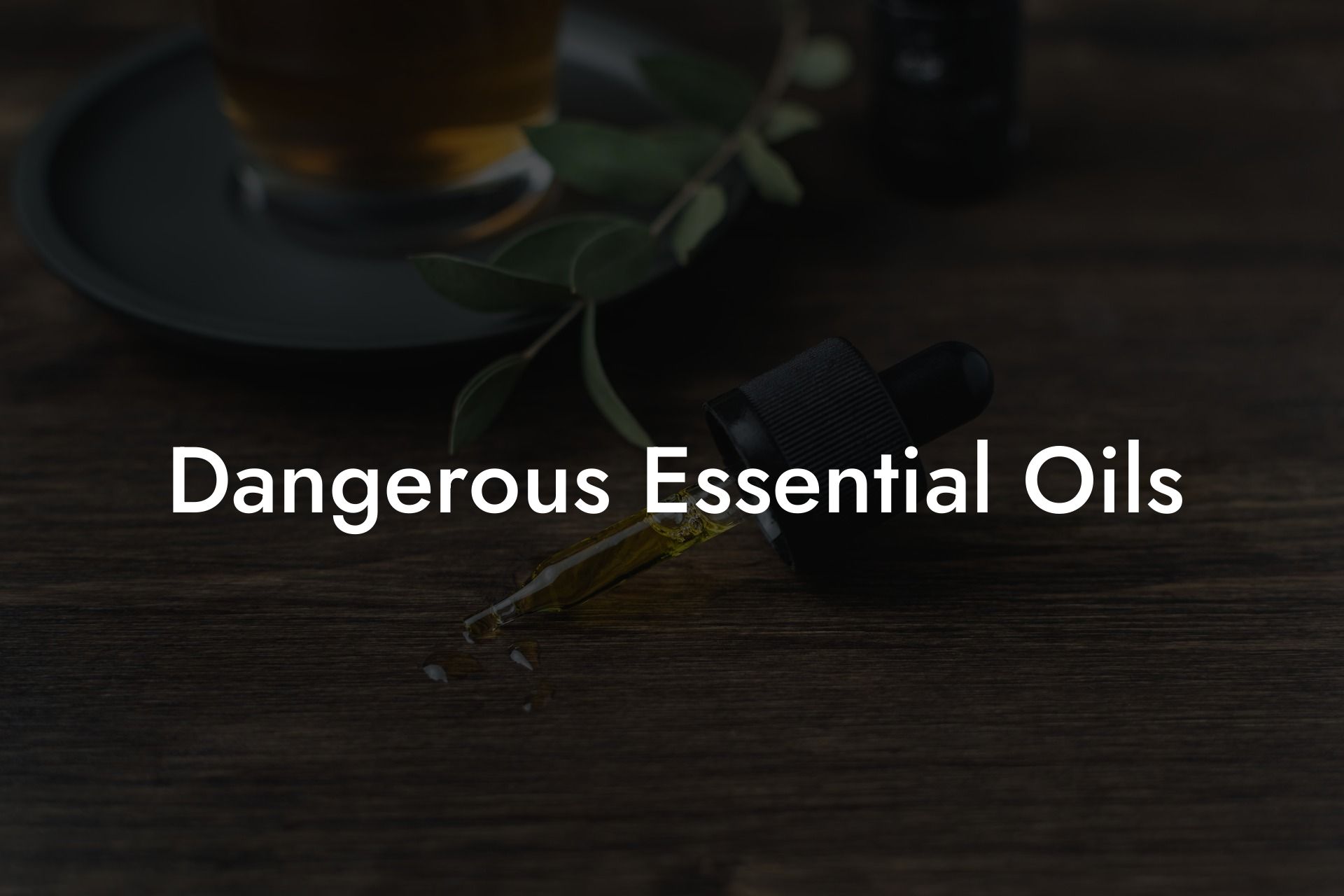Essential oils have become increasingly popular in recent years, with many people turning to them as a natural solution to improve their mental and physical wellbeing. While they can be incredibly beneficial when used correctly, it’s important to understand that not all essential oils are created equal, and some can be dangerous if misused. In this article, we will explore some of the essential oils you need to be cautious with, as well as the safe ways to enjoy their benefits.
Table of Contents
Why Are Some Essential Oils Dangerous?
Essential oils are potent plant extracts, which means they can have both healing and harmful effects if not used correctly. Some essential oils are known to be toxic or sensitizing, meaning they can trigger allergic reactions or irritate the skin, respiratory system, and mucous membranes.
Photosensitive Essential Oils
Some essential oils can cause photosensitivity, meaning they increase your skin’s sensitivity to the sun. When using these oils topically, it’s important to avoid sun exposure for several hours after application to reduce your risk of sunburn or rash.
Common photosensitive essential oils include:
- Bergamot
- Lemon
- Lime
- Orange
- Grapefruit
Essential Oils to Avoid During Pregnancy and Breastfeeding
Certain essential oils have the potential to impact hormone levels or uterine contractions and should not be used during pregnancy or breastfeeding:
- Clary sage
- Rosemary
- Basil
- Juniper
- Fennel
Toxic Essential Oils
Some essential oils can be toxic if ingested, inhaled, or absorbed through the skin in excessive amounts. These oils should only be used with caution and under the guidance of a certified aromatherapist:
- Camphor
- Wintergreen
- Hyssop
- Eucalyptus globulus
- White camphor
Safe Usage of Essential Oils
To safely use and enjoy the benefits of essential oils, keep these guidelines in mind:
- Dilute essential oils with a carrier oil before applying to the skin.
- Perform a patch test on a small area of skin before using an oil to check for adverse reactions.
- Only use 100% pure, high-quality essential oils from a trusted source.
- Consult a certified aromatherapist or healthcare professional before using essential oils during pregnancy, breastfeeding, or with any specific medical conditions or medications.
- Avoid using essential oils on or around the face of infants and young children.
- Always keep essential oils out of reach of children and pets.
Dangerous Essential Oils Example:
Imagine a person planning to spend a day at the beach. They decide to use a homemade sunscreen containing citrus essential oils, such as lemon and lime. After applying the sunscreen and spending a few hours in the sun, they develop a painful, blistering rash on their skin.
This example demonstrates the importance of understanding the potential risks associated with essential oils – in this case, photosensitivity. By simply avoiding citrus oils in sunscreen or abstaining from applying them topically before sun exposure, this unpleasant outcome could have been avoided.
Awareness is key when it comes to navigating the world of essential oils. By educating yourself on the potential dangers and proper usage methods, you can still enjoy the variety of benefits offered by these powerful natural remedies. Share this article to help inform others and keep them safe while enjoying the benefits of essential oils. For more detailed guides on essential oils and aromacology, be sure to explore other articles on the Oshu Oils blog, and browse our range of artisan essential earth oils to find the perfect blend to enhance your wellbeing.





















